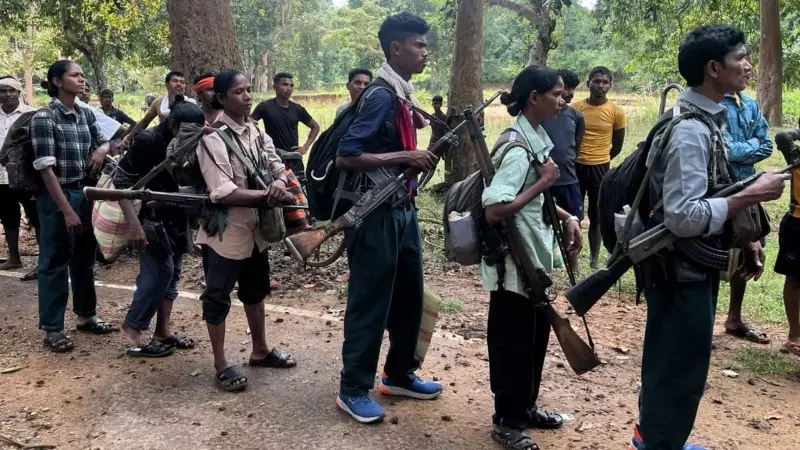
In a significant blow to left-wing extremism in Telangana, a senior Maoist commander has laid down his weapons, bringing with him startling revelations about the rebel group's current leadership crisis and operational weaknesses.
D. Ramesh, known by his nom de guerre Srikanth, surrendered before Telangana Police officials in Bhadradri Kothagudem district, exposing the fragile state of the once-formidable guerrilla movement.
The Breaking Point
According to police sources, Ramesh's disillusionment reached its peak following a recent encounter in Cherla forest area, where security forces neutralized several Maoist cadres. The 32-year-old had been active in the movement for over a decade, rising through the ranks to become a key operative in the Telangana-Chhattisgarh border region.
Leadership Vacuum Exposed
Most significantly, Ramesh confirmed that Haribhushan now commands the Maoists' military operations across both Telangana and Andhra Pradesh. This revelation comes amid what insiders describe as a severe leadership crisis within the banned Communist Party of India (Maoist).
"The surrender has provided us with crucial intelligence about their current chain of command and operational tactics," stated a senior police official involved in anti-Maoist operations.
Why Rebels Are Choosing Peace
- Intensified police operations in forest areas
- Lack of medical facilities and supplies in hideouts
- Growing disconnect between leadership and ground cadres
- Successful government rehabilitation programs
- Diminishing local support in tribal areas
A Pattern Emerging
Ramesh's surrender marks the latest in a series of high-profile defections from the Maoist ranks. Just months earlier, another senior leader, Saranga Madkam, similarly abandoned the armed struggle, citing similar concerns about the movement's direction and viability.
Security analysts note that these surrenders indicate a broader trend of declining morale and organizational coherence within the extremist group that once controlled significant territory in central India's tribal heartlands.
The intelligence gathered from surrendered cadres like Ramesh is proving invaluable in crafting more targeted counter-insurgency strategies while simultaneously encouraging more rebels to consider rehabilitation over continued armed struggle.






